Table of contents
Guest writer: Anna Nilsson Spets
Many people wonder what it's like to live in another country, are you and will you remain Swedish?
Yes, there IS a difference, a big difference in some things and somewhere deep inside you are always Swedish. However, I don't have a Swedish flag at home and I don't celebrate any Swedish holidays.
Do you have your own sign for frog routes in Sweden?

Social life
I live in the countryside, the social codes may be different here than in the big cities, but family and friends are priority 1. Definitely. As a foreigner, it's hard to break into a community, but it can be in Sweden too.
Belgians are a unique social group that loves to socialise, for a long time. They eat and drink endlessly. There's no such thing as a coffee break here. Expect at least half a day of socialising.
Cafés are the central meeting point in everyday life and a café is not the Swedish type with coffee and buns, here we talk about beer. People often go to the café and most have a regular place where several generations meet and the dog can also come along. However, smoking is allowed outside.

Belgians prefer to do things in groups, cycling and walking for example, the roads full of wobbly pensioners on tour. A leader with a stop sign at the beginning and a leader at the end to keep the group together. All clumsily dressed in some company-sponsored neon-coloured vest. The sports cyclists are worse though, they refuse to share the road with the cars.

Weekends are often spent in the Ardennes for its natural beauty or on the coast, which is completely ruined.

The older generation, mostly men, hang out at the pigeon club, drink a beer and let their pigeons out.
Coder
Sure, but taking your shoes off inside is not a typical Swedish thing to do here.
Keeping time, no, time is a fluid concept. No one would raise an eyebrow if you were half an hour late, there might have been a traffic jam. Traffic jams are part of everyday life here, for hours. Traffic is hell and Belgian cars have no indicators.

Titles ... Being called Mrs or Madam is part of everyday life; people with higher education, such as doctors, are called Mr Doctor. I do not like it.
Food and drink
Belgium is famous for beer, I can't count them all... It's basically the death penalty if you serve beer in the wrong kind of glass, a Duvel requires its own glass and vice versa.


Here, Bira is a social drink that is not usually drunk with food, then it is wine or soft drinks that apply, lots of soft drinks. Yuck.
Coffee ... well, don't expect anything strong, but maybe something strong.

And what do we eat then?
Lots of meat. Home cooking is not my thing but my partner's favourite dish is fried chops in gravy, with mashed potatoes mixed with either spinach or carrots. Inedible.
IKEA is immensely popular, especially meatballs with frittjes, lingonberry jam, brown sauce AND mayo, all decorated with a Swedish flag. Almost an ethical offence.

It's not a big deal to have a fresh vegetable salad with your food here, preferably cooked vegetables and preferably with a couple of spoonfuls of sugar on top, hoodoo.
If they are fresh vegetables, they should be drenched with mayonnaise, because mayonnaise is the most important thing of all.
Frittjes ... a Belgian likes to have frittjes several times a week, either picked up at a fritur or home-fried. The fritter has a central role in Belgian cuisine. And yes, we eat frittjes with mayo. A special version for dogs is available.


Mussels, or Moules frites, are the national dish, mussels are available most months of the year, or as the Belgians say, all months with an R in the name.
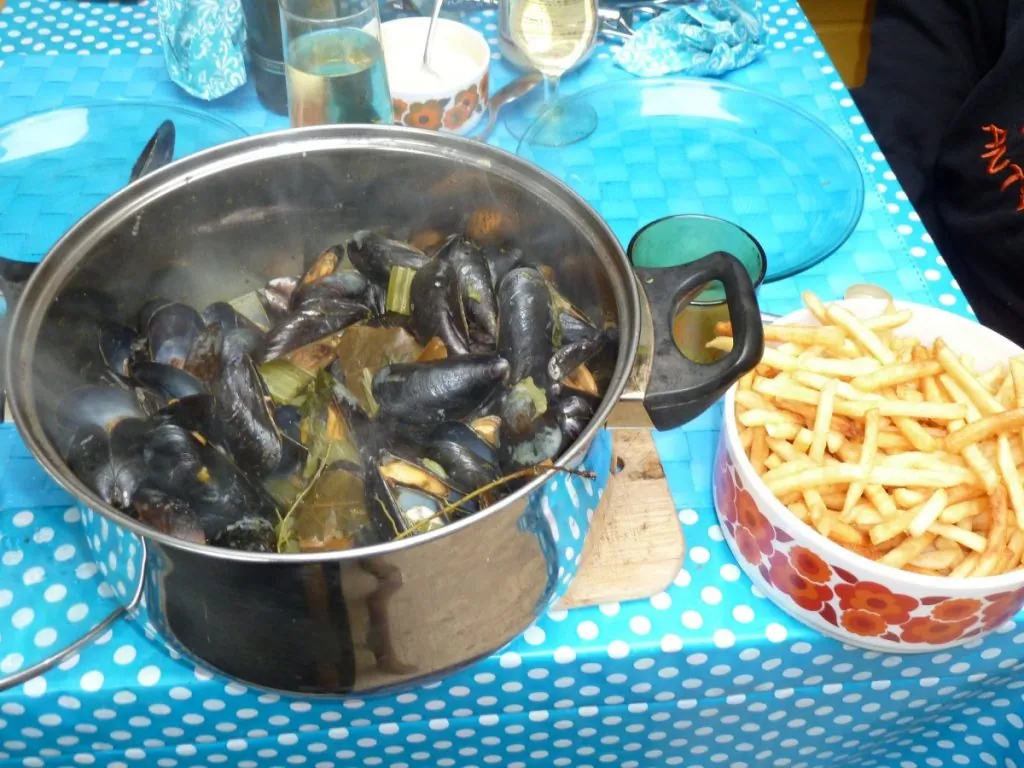
In spring, we wait for the first tender asparagus to be eaten with egg sauce, in autumn we roast chestnuts.

Sunday breakfast is something else, when the queues are long outside the bakeries and Belgians buy small breads such as rolls and croissants and with it x number of koffiekoekjes, i.e. pastries and the like.

We eat and drink ... all the time.
Home and society
In many ways it's 50 years after Sweden, an unwieldy bureaucracy with all the personal visits, copies and stamps for something as simple as taking out car insurance. I sigh. It does keep people in work though.
And if you don't want to work, you can call in sick, in every basement and villa there is a family doctor who will happily issue a sick note. A simple cord and at least a week at home.

The housing market depends on where you put your stakes, the quality of the accommodation varies. Here you take your fridge, freezer and cooker with you when you move, my God.
There are plenty of landlords who care little about standards and the presence of mould and soot, so what.
Our house is an old farmhouse, no heating upstairs and downstairs is heated by a creepy diesel stove. LPG for cooker and hot water.

Rubbish collection is a whole science, it is sorted into different bins, sacks and trays, a special calendar is a must to keep track.

Belgians darken their houses at the beginning of the evening, when the shutters are rolled down because apparently you can't see in or out. During the day, the windows are preferably covered with tinsel curtains.
The elderly still count everything in Belgian francs, which disappeared 25 years ago.
Things were better in the past.
Then there was more tying.

Talking about political affiliation or income is taboo, but we are happy to talk about our own and others' illnesses.
Nature
Life in Belgium is a bit different... I miss the forest and the lakes because here we don't have the unique right of public access and picking mushrooms and berries, nope.

Swimming in a lake without a lifeguard is strictly forbidden, but being the rebel that I am, I go swimming.

The weather hmmm ... it rains a lot, it can thunder and hail in the middle of winter which, incidentally, rarely offers much snow and if it does, the whole country panics. Staying out in shitty weather is not something you do either.


Language
Language is the key to community and integration. Belgium is trilingual (French, Flemish, German), in my part we speak Flemish which is a dialect of Dutch. Many words remind and resemble Swedish but have a different pronunciation. The grammar is completely different though. Counting is done backwards, so we say one and twenty instead of twenty-one.
I did two language courses when I came here, the rest is self-taught and of course I make frogs, lots of frogs.

After 15 years in Belgium, you might think you've got used to it, but not, said Nicke.
There is much that is good and better here, the social security system and faster healthcare are a couple of examples.
Easy to get a job, especially if you know one of the languages.
Cosy, polite and nice people we have with us.
If I long for home ... Back to Sweden, hmmm yes. Sometimes I do. And I remain Swedish in both heart and soul.



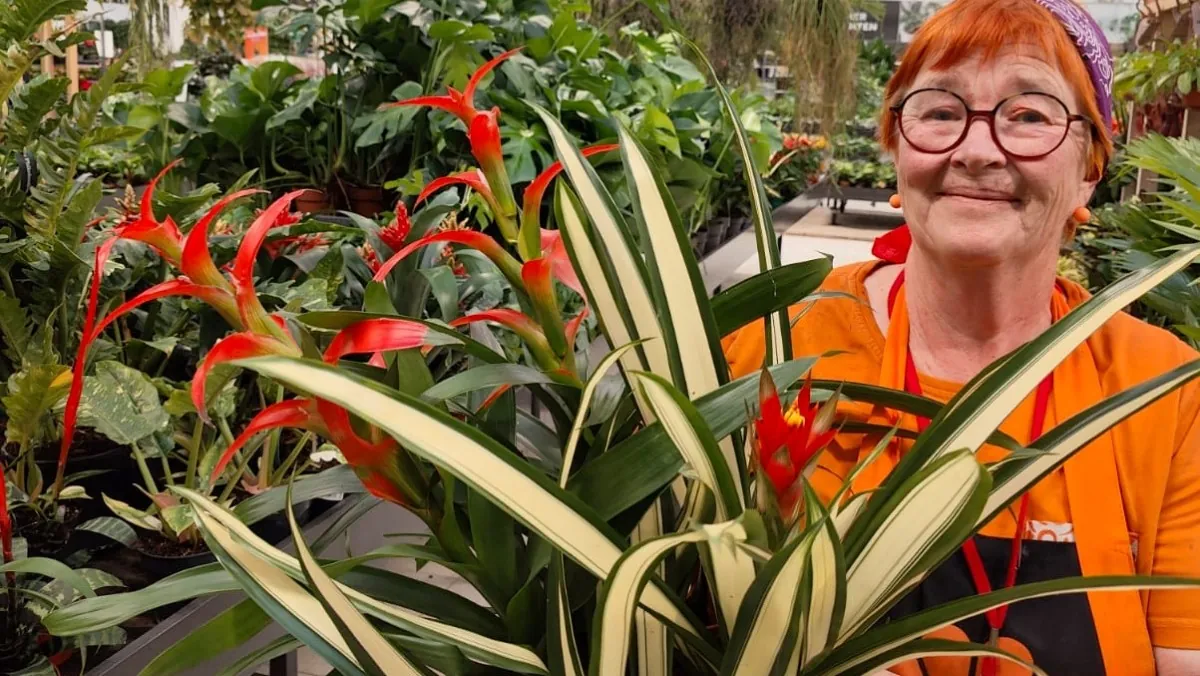






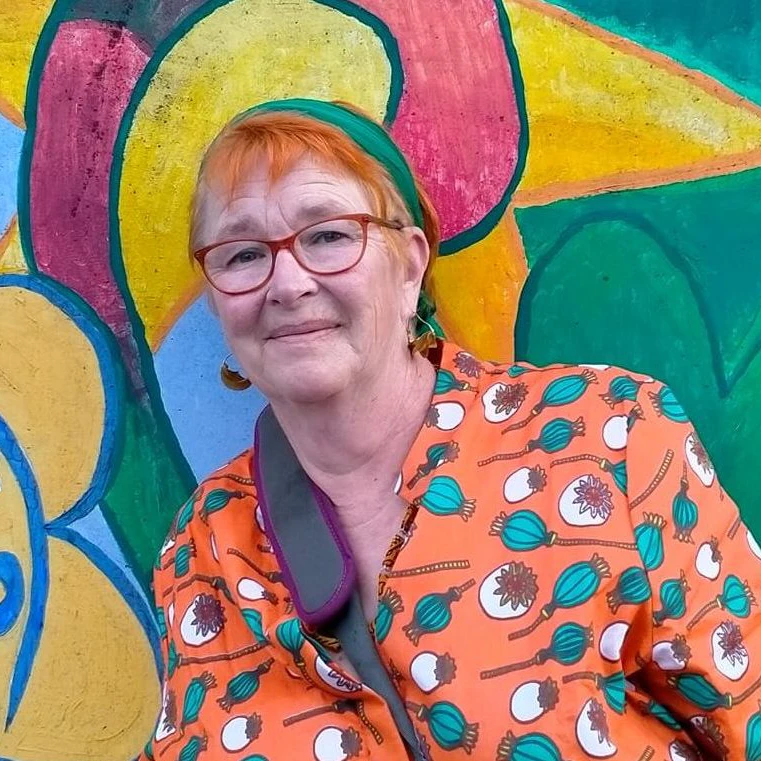
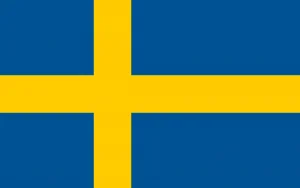
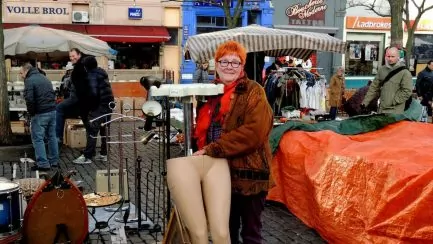
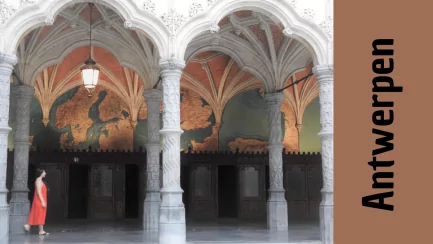
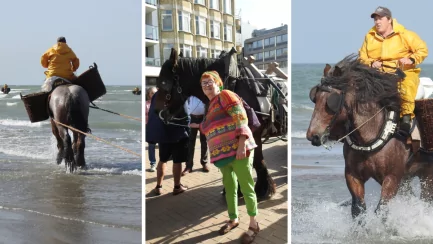
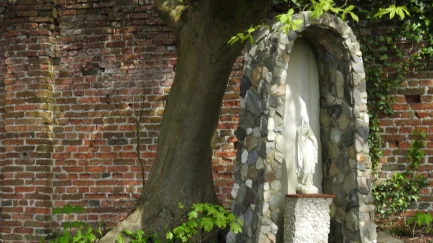



Englund Helena says:
Nice to read about Belgium 😍 We have friends there that we visit every year. They live in a small town near Antwerp. Their mother tongue is Flemish but thankfully they speak English 😂😂. Before we met them I thought Belgium was a very ugly country but I think I have changed my mind. There are so nice cities and buildings. Unfortunately, it is crowded on the roads and you have to expect delays.
22 September 2024 - 8:30
Only British says:
Yes, I lived in Brussels and avoided strange heating but mould was not unusual but it is not in the UK either. Mould is everywhere (and it actually rains more in Belgium than in the UK which people don't believe). The idea of bringing white goods is quite common in Europe, in Germany for example.
The broken coastline made me depressed but it was the rain that drove us away. The fact that people don't go out when it rains. We had to buy outdoor clothes for our daughter in Sweden or go to Germany and if it rained, there were no other children in the playground but the neighbouring countries stared at us.
At the same time, there are actually things that they were ahead of Sweden in. Bancontact was not something we had then. Health care was better too. Proper control and short queues. You were the doctor's customer. That has deteriorated just like in the rest of Europe, I have heard. But despite good care, antibiotics were prescribed left and right and there were at least three thousand more pharmacies than the population needed (probably the same here now).
The bureaucracy was horrendous. Licences for the car radio, the right size of envelopes, not to mention registering newborns. The language fights between Walloons and Flemish too. How would they ever care about us when they didn't even get along among themselves in this constructed country. Very hard to get close to Belgians unlike how it is in many other countries. They weren't unpleasant at all, just uninterested. Had enough of their own. But the beer culture! Although I never got over the fact that they eat puddles. However, I now love mayonnaise on my chips and want it everywhere except in the UK where it becomes vinegar. 😀
PS. Yes we have signs for frogs in some places in Sweden. We build tunnels for them by roads.
22 September 2024 - 9:04
Anna Nilsson Spets says:
Yes the weather is something else... and agree with the clothes, impossible to find something suitable, strangely enough. Puddles are good but a hell to peel them. Also agree about antibiotics, and that we have extremely many pharmacies.
22 September 2024 - 23:13
Anna Nilsson Spets says:
That's funny, I live not too far from Antwerp, near a town called Geel. I must admit I didn't know much about Belgium before I met my partner. And yes, the traffic is horrible. Thanks for reading.
22 September 2024 - 13:44
Yossu says:
Belgium, which is still quite close to Sweden geographically, but still such differences! I would probably make daily mistakes if I moved there.
I would have liked to live by not being outside in bad weather. Perhaps I could have seen a doctor to get a certificate to stay home from work when it rains.
22 September 2024 - 15:27
Anna Nilsson Spets says:
Well, it's not that difficult to get a certificate...
23 September 2024 - 5:04
BP says:
Hahaha! Wondered for a moment if you had ended up in Germany or Austria instead. There are definitely some similarities, including that you take the stove, fridge and freezer with you when moving.
The heating system is unthinkable here in cold Sweden, so we skip it. Moules frites are popular here at home too. One of my favourite dishes actually. Have also eaten that dish in Brussels, a must I learnt then. Washed it all down with beer and a Calvados that the restaurant offered.
Then there is a big difference between the French-speaking part of Belgium and the Flemish part. And since these two "parts" can't ever get along, nothing ever gets done, I hear...
But at least you seem to enjoy being there after all these years. And that's the main thing.
French fries are just as "sacred" in Holland where they eat Flamse frites with a lot of mayo. Yes, why not. Nowadays they serve fries with aioli to everything. Not against me:-)
22 September 2024 - 20:21
Anna Nilsson Spets says:
Well, I'll probably be here for a while longer.
Frittjes in Holland are also a must, but they have a sweeter mayo.
I didn't go into the politics here at all, it's just a soup. There are actually three parts that have to come together, the little German one too.
23 September 2024 - 5:06
Monica says:
Belgium and the Netherlands do not give a very pleasant impression. I think Luxembourg gives a more pleasant one.
See the rubbish, ok for recycling but when a beautiful church gable in the middle of Brussels has a mountain of rubbish on the whole gable and it is thrown around it. Terrible to see and in that city! It gave a disrespectful impression. And moreover in the EU quarter. And don't forget the shop windows where probably underage girls sat and the men ticked off in the Netherlands. In a somewhat luxurious city otherwise but right in the shopping district.
And found playgrounds unpleasant with shouting aggressive parents. Horrible. And horrible to see pastry shops with the dangerous contents of the cakes. The food not very uplifting in so called nice restaurants. And rain of course.
Germany, Austria and many more countries are something completely different and nice and beautiful. But useful to see on the spot. I wonder if they don't cut the grass and weeds at the house where you live? And no interest in travelling here any more after a number.
But you'll be fine where you live.
25 September 2024 - 13:06
Anna Nilsson Spets says:
Monica, as far as rubbish collection is concerned, this is the situation in the big cities, the rubbish is piled up outside the buildings and collected on different days. In addition, there are strikes every now and then and the rubbish is left behind, which is of course regrettable. Doesn't matter if it's an official neighbourhood or not.
Now, I also don't know if you are referring to prostitution and dangerous substances in cakes in Holland, it seems like it.
As far as prostitution is concerned, it is state-controlled and authorised, in Holland as in Belgium. There are brothels in every small town too.
Personal use of cannabis is allowed in both Belgium and NL and no-one would bat an eyelid if you smoked a joint. However, I highly doubt you've ever seen brownies or grass cakes in a regular pastry shop, never. However, in coffeshops where it is allowed.
Screaming aggressive parents in Belgium... hmm, the Dutch are much more vocal than the Belgians, so I think you're referring to Holland there too.
The food, I don't know which country you're referring to either, Belgian cuisine is not inferior to Swedish. Very French influences.
The grass by our house... as you can see, it's far too wet for the municipal machine to cut.
Sorry you don't have anything positive from your visits here, there are so many nice things here too you must think.
25 September 2024 - 16:48
Frido says:
Thanks for a fun and interesting report! You are welcome to write even more about Belgium! I love beer so I would love to go there (have been to the country once). I always enjoy reading your texts, you express yourself so well and with fun!
25 September 2024 - 17:02
Anna Nilsson Spets says:
Frido, thank you for reading and for your kind words. Yes, this is the Mecca for beer lovers, I myself am not a beer drinker of major format, my partner belagren sticks to proven Duvel. But I think Kriek is good if it is warm.
Welcome back to the programme
25 September 2024 - 17:16